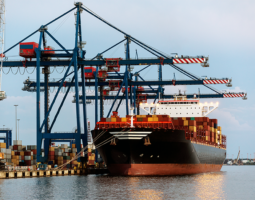Importers with eligible China Section 301 List 3 and List 4a imports have until Friday to file with the CIT for a chance at a refund.
Last week, a case was filed at the Court of International Trade on behalf of a vinyl tile supplier seeking refunds for duties paid under the China Section 301 investigation. Any interested and eligible importers only have until Friday, September 18th, to file before the court.
The plaintiff in the case is making the argument to the court that the finding of the Section 301 investigation surrounded China’s lack of respect for Intellectual Property Rights, or IPR. List 3 and List 4a were both time-barred because they were not announced within the first twelve months of the finding and didn’t apply because the actions weren’t centered on IPR violations.
The first two lists of tariff items imposed by the agency were $34 billion and $16 billion, respectively. When China retaliated against American exports and began to impose their own punitive duties, the White House brought additional duties on half a trillion dollars of imports on List 3 and List 4a.
Since then, companies have requested and been granted exemptions. However some of those exemptions are now expiring, such as those for the tile importer. They are seeking that the CIT determine in their favor, refunding all Section 301 duties paid to date on List 3 and List 4a-eligible import shipments and into the future, until such time as the White House or USTR determine to no longer them under this investigation.
On the heels of this case came a decision Tuesday from the WTO siding with China in declaring these duties to be unlawful. The US will undoubtedly appeal this decision. However, the WTO’s appellate body is so hobbled that there’s literally no one to hear the case, so the US will continue to collect these Section 301 duties regardless.
The immediate action item for importers who have paid Section 301 duties for products on List 3 or List 4a is to consult with their Customs counsel and determine if they are eligible to file to protect their right to a refund. Importers who do not have counsel of record admitted before the CIT can contact Scarbrough International for a recommendation.
We want to also reiterate that like filing a protest that you believe is correct and in your favor, there is no guarantee that this case will be decided in the importer’s favor. Further, if the agency loses, the determination on whether or not to appeal will rest with the leadership of the USTR and the administration at that time. What we do know is that failure to file by the deadline will deprive importers of a shot, no matter how remote, to claw back money for what has been a very expensive exercise for companies with supply chains centered in China.

